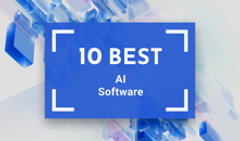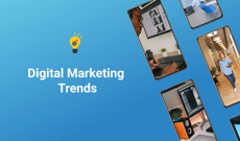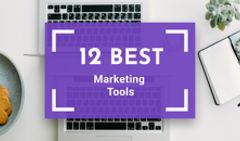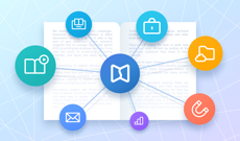The latest annual McKinsey Global Survey on the current state of AI confirms the explosive growth of generative AI tools. 79 percent of all respondents say they’ve had at least some exposure to gen AI, either for work or outside of work, and 22 percent say they are regularly using it in their own work.
So when it comes to us, marketers, we are constantly seeking innovative ways to enhance our work, and leveraging AI in marketing can open up a world of incredible possibilities.
But isn’t AI a threat to creativity? Is it better to steer clear of it? Not at all! When used wisely, AI can make it easier for marketers to show up for customers in a more connected and consistent way. What’s more, AI empowers marketers to stay on top of their clients’ needs and follow the latest trends. Such new insights can help them build campaigns faster with proven ROI and performance.
These goals can be achieved when the marketer’s expertise is guiding the AI, not the other way around. From budgeting and bidding to audiences to creating content, the marketer’s inputs are vital in guiding AI to deliver the best results and open new avenues of growth for your business. That’s why today, we’ve decided to talk about the benefits of AI in marketing and how marketers can harness its full potential. But before that, let’s see how AI marketing is defined.
What is AI Marketing?
AI marketing refers to using artificial intelligence technologies to enhance various aspects of the marketing process. AI has revolutionized the way businesses approach marketing by providing advanced tools and capabilities to analyze data, automate tasks, create visual content and texts, personalize experiences, and optimize campaigns.
What are the Benefits of Using AI in Marketing?
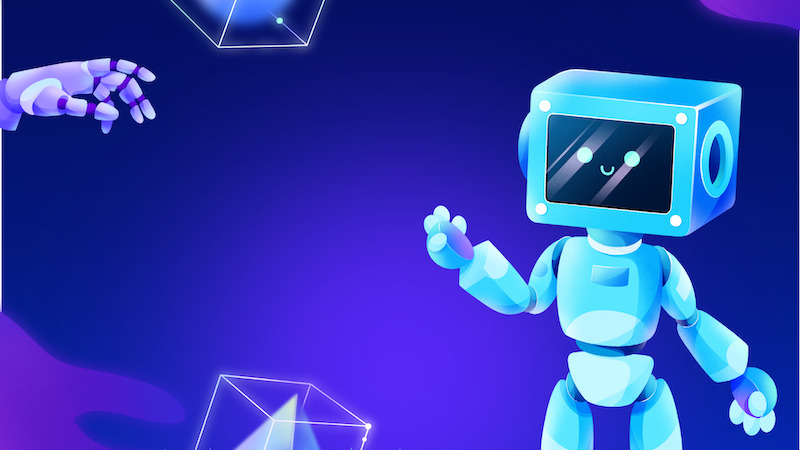
Using Artificial Intelligence in marketing offers numerous benefits that can help businesses be more efficient in their marketing activities. Some of the key benefits include:
📊Data analysis and insights: AI can process and analyze large volumes of data quickly, identifying patterns, trends, and correlations that might be missed by human analysts or would take longer to find. This leads to better insights into customer behavior, preferences, and market trends. Plus, it saves huge amounts of time. According to recent research, 79% of sales and customer service professionals using AI tools at work have experienced a positive impact on their performance at work.
🧒 Personalization: AI enables marketers to create highly personalized experiences for customers by tailoring content, recommendations, and offers based on individual preferences and behaviors. This personalized approach can lead to higher customer engagement and conversion rates.
✍️ Content brainstorming and generation: An AI text generator can assist in coming up with new ideas for future content and generating visuals or texts quickly and at scale. While human creativity is still crucial, AI can help streamline content creation processes.
🤖 Efficiency and automation: AI in digital marketing can automate repetitive and time-consuming tasks, such as data entry, report generation, and campaign optimization. This frees up marketers to focus on more strategic and creative aspects of their work.
📈Predictive analytics: AI-powered predictive analytics can forecast customer behavior and trends, helping marketers make informed decisions about future campaigns, product launches, and pricing strategies.
👥 Improved customer experience: AI-powered chatbots and virtual assistants can provide real-time support to customers, enhancing their experience and reducing response times.
🚀 Competitive advantage: Businesses that adopt AI in their marketing strategies can gain a competitive edge by staying ahead of industry trends and delivering more personalized and relevant experiences to their customers.
All in all, it looks quite promising, doesn’t it? The trick here is to make AI your best aid and implement it at the right time and place. Let’s see how you can do it in various areas of marketing.
How to Use AI in Marketing Activities
#1 Creating Written and Visual Content
When you work in content marketing or design departments in your company, you might notice that you have to be very creative and find new ways of describing or illustrating your products or services every time. It can be quite a challenge to generate new ideas consistently without repeating yourself. Here’s where AI tools can come in handy.
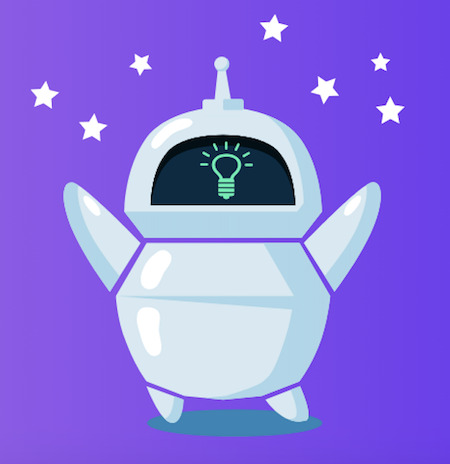
For example, suppose you need to write a new article about how video marketing can boost engagement. While you might have a few initial ideas, you still want to find new angles and delve deeper into the topic. In such cases, you can turn to ChatGPT and ask: "How can I use video in marketing to boost engagement?’ ChatGPT will gladly provide you with an extensive response, offering fresh ideas to explore, and this can be the inspiration you need to kickstart your creative process. Just keep in mind that the best, high-quality content is produced by marketers using insights from AI to be more creative and write content faster.
The same applies to visual content—by using prompts with tools like Midjourney, you can generate imagery that gives your thoughts a new direction. Thus, your visuals can always be unique and fresh to the eye.
When using AI for creating content, remember that such a content isn’t unique and can be outdated because AI’s databases are limited and not updated regularly. Don’t rely on the info that GhatGPT gives you and always check the facts. Use AI as a starting point and then work with your own sources and knowledge.

💡Wondering what the content marketing future with AI can look like—will it be a bright or a dark one? And how do people feel about AI-generated content like images and texts in the present? Here at FlippingBook, we’ve conducted our own research about the usage of AI in content marketing. We surveyed over 650 professionals to see which content they prefer—texts and images made by AI or by people. What made our research unique was that the surveyees weren’t aware AI was involved at all. So there weren’t any biases involved and we could see a clear picture.
Check out the results of our research right away to know if AI is the enemy of content creators or a new aid in the chase for quality content, and much more! We’ve created our research in a format of an interactive flipbook so you can read the report comfortably.
🤖 Recommended tools:
ChatGPT: a natural language processing tool driven by AI technology that allows you to have human-like conversations and much more with the chatbot. The language model can answer questions and assist you with tasks, such as composing all kinds of text or code.
Midjourney: an AI-based image generation tool that uses a text-to-image model. In simpler terms, it can read your text prompt and create an image based on it.
Visla: an AI powered video creation platform that enables teams and individuals to easily record, edit, and share high-quality videos.
#2 Analyzing Data and Insights
AI analytics tools use machine learning in marketing to analyze data on the go, providing key customer insights, uncovering patterns, and establishing data relationships. Unstructured data, such as reviews, comments, social media posts, and forums, can truly capture your customers' perspectives. Previously, this data would likely have been excluded from your business decision-making, often categorized as "too challenging" to handle. But now, with the help of AI, such knowledge will give brands a deeper understanding of customer behaviors and hidden opportunities.
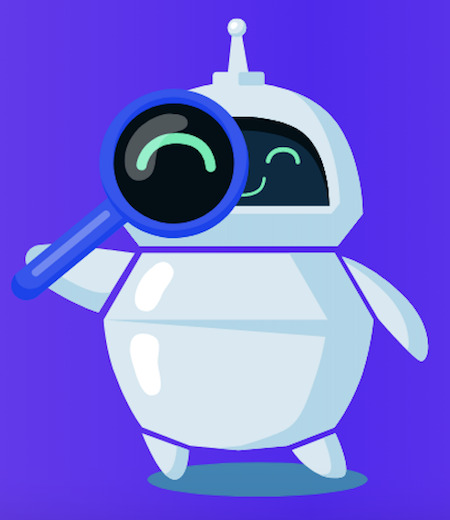
AI-driven text analytics and predictive analytics allow businesses to anticipate customer needs, improve customer service, maximize business efficiency, and increase their customer lifetime value. These data-based insights facilitate informed decision-making, and you can easily decide how to adjust your marketing campaigns based on the knowledge at hand.
🤖 Recommended tools:
Tableau: an analytics and data visualization platform that allows users to interact with the data they have without the need for coding.
MonkeyLearn: a no-coding platform with AI data analysis features for users to visualize and rearrange their data. It comes with multiple AI-powered text analysis tools to analyze and visualize data instantly to the user’s needs.
#3 Enhancing Personalization
AI personalization involves using AI technologies such as machine learning and deep learning to create curated and personalized experiences for users of a product or service. With personalization, brands aim for a better customer experience and satisfaction, which in return increases engagement, customer satisfaction, and conversion rates.
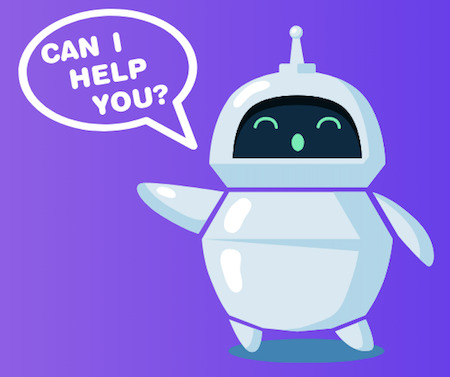
Here are some of the most popular cases of AI Personalization in marketing:
- Product recommendation
- AI personalization in ad-targeting
- AI content personalization
- Dynamic pricing
- Personalized messaging and emails
- Personalized AI-powered chatbots
A popular example of AI-powered personalization is Amazon’s recommendation system. The system uses a machine learning algorithm to analyze customers’ purchase history, search records, and other behavioral data to predict products the customer can be interested in and recommend them in real-time. Such personalized recommendations have played a significant role in increasing customer engagement and sales for Amazon.
🤖 Recommended tools:
Adobe Target: an automated personalization platform that enables brands to deliver engaging and personalized user experiences. Adobe Sensei, a leading AI and ML technology by Adobe, powers Adobe Target.
Intellimize: an AI-powered tool that helps companies move away from traditional methods to new dynamic personalization and advanced optimization capabilities. Using the Intellimize editor, you can easily create and experiment with websites to personalize and test various elements of your site.
#4 Automating Lead Scoring and Nurturing
Lead scoring and nurturing can be a time-consuming process for a marketer, but AI can speed it up by analyzing data on leads and identifying which prospects are most likely to become customers. Thanks to the power of AI tools, businesses can gain insights into their target audience, predict future behavior, and prioritize leads based on their potential value.
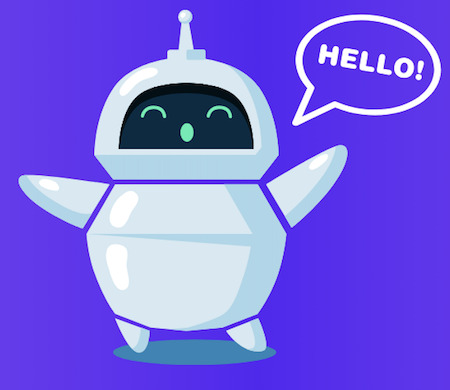
Automated nurturing can also result in higher conversion rates, as leads are effectively guided through the sales funnel until they are ready to make a purchase. This way, marketers get the quality nurtured leads they can work with right away, without wasting time going through every lead manually. The significance of this change can’t be overrated!
🤖 Recommended tools:
Leadzen: an AI lead generation tool designed to assist with lead generation and prospecting. This tool gives you the most in-depth, up-to-date, and comprehensive information about your prospects.
Drift: an all-in-one AI lead generation and nurturing tool that will help you find new leads and interact with them to convert them. It helps your marketing, sales, and customer teams connect with customers through engaging conversations.
Final Thoughts
As you see, when marketers learn how to incorporate AI to streamline and enhance marketing processes, they can become trendsetters in their industries and will stay way ahead of the competition. First and foremost, even as more powerful AI technologies emerge, marketers will remain firmly in the driver’s seat, leading AI to increase productivity and achieve business goals.

